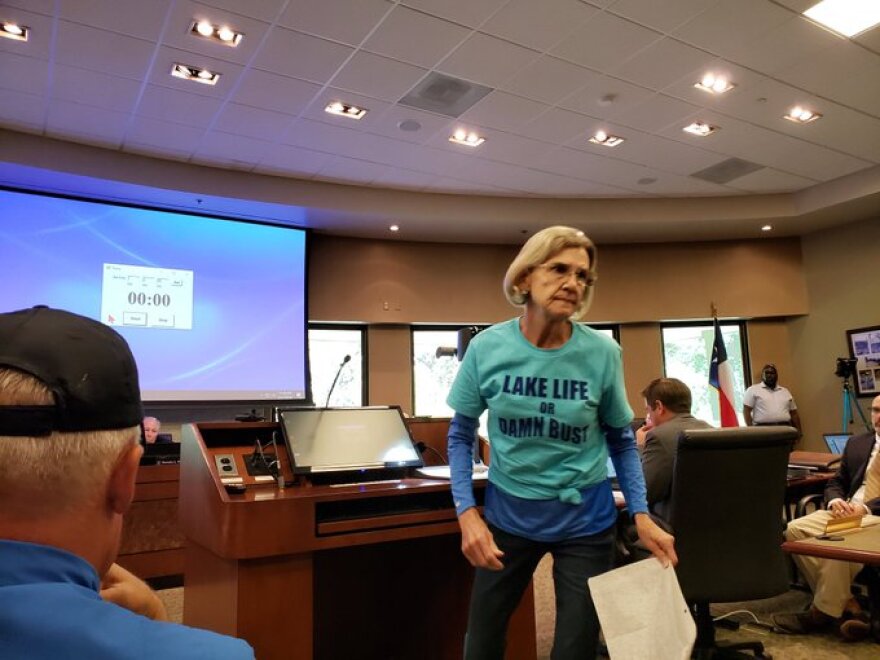Residents near four Texas lakes that are scheduled to be drained by the Guadalupe-Blanco River Authority have formed the organization “Save Our Lakes” to fight for the future of the waterways.
Save Our Lakes members protested outside the GBRA’s board meeting room on Wednesday and called for them to postpone the drainings until economic and environmental impact studies can be completed.
The GBRA said public safety is at stake after two floodgates burst on two other lakes, so the draining of the lakes remains on schedule to begin on Sept. 16.
“What the inspection report released last week tells us is that because the steel is 90 years old and it’s either under water or inside concrete, it’s starting to deteriorate,” GBRA General Manager and CEO Kevin Patteson said. “We don’t believe we have a safe condition. We can alleviate that condition by lowering the gates.”
Tess Coody-Anders, a member of Save Our Lakes, said the GBRA seemed willing to talk and then suddenly caught lake communities off guard with its decision.
“I think like most of us here, we felt we were in conversations and then unexpectedly through news reports that we all learned a decision had been made last week,” she said. “And I think that’s where GBRA has gone wrong. Communication and transparency will go a long way to making this a collaborative solution.”
Save Our Lakes plans to make appeals to the governor’s office for state intervention.
Speakers urged the board to try another approach, such as banning everyone from the waterways. The GBRA believes such a ban won’t work. Surveillance video from the GBRA shows people frolicking in and around the dams.
Businesses and property owners harshly criticized the board for endorsing the plan. They said it will cost the area jobs and income.
Thomas Belton, who operates a ski school out of the Lake Breeze Lodge, grew emotional before the board.
“Everything that I love, care for, worked so hard to get to in my life is over if you take this away without a plan to fix it,” he said.
Seventy-year-old Nancy Bruington, who lives on Lake McQueeney, said her family has enjoyed the lakes for several generations. Wearing a “Shame on GBRA” t-shirt, she accused the board of mismanagement by allowing the floodgates to fall into such disrepair.

“You have taken a remorseless attitude of blameless arrogance by not accepting responsibility. Shame on you for not caring enough and being a disgrace to Texas,” she said, addressing the board.
The GBRA said it cannot afford to repair the floodgates at a cost of $180 million, but critics say some third-party engineer reports suggest it can be done for much less. Some see the move by the GBRA as a calculated excuse to walk away from its money-losing hydroelectric business and focus on selling water.
The GRBA maintained it wants to work with lake associations to find a long-term solution. Some property owners on the lakes are looking into the creation of water control districts that might serve as a foundation for the repair of the floodgates.
Some of the property owners on the smaller lakes said there are too few of them, so a water control district property tax would never raise enough money for floodgate repair.
Brian Kirkpatrick can be reached at Brian@TPR.org and on Twitter at @TPRBrian.




